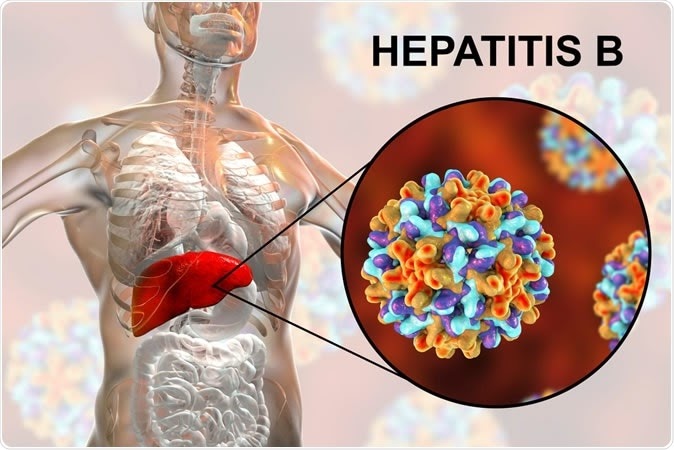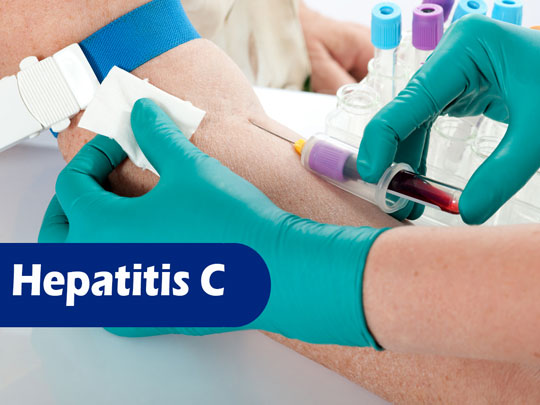World Hepatitis Day 2021: Know about the Myths and Facts

ERCP Overview
July 1, 2021
Cirrhosis of the Liver: All you need to know
August 20, 2021World Hepatitis Day
World Hepatitis Day (WHD) takes place annually on 28 July bringing the planet together under one theme to boost awareness of the worldwide burden of hepatitis and to influence real change.
World Hepatitis Day is a chance to intensify national and international efforts on hepatitis, encourage actions and engagement by individuals, partners, and therefore the public, and highlight the necessity for a greater global response as outlined within the WHO's Global hepatitis report of 2017.
The date of 28 July was chosen because it's the birthday of Nobel-prize-winning scientist Dr. Baruch Blumberg, who discovered hepatitis B virus (HBV) and developed a diagnostic assay and vaccine for the virus.
Low coverage of testing and treatment is the most vital gap to be addressed so as to realize the worldwide elimination goals by 2030.

What is Hepatitis?
Hepatitis refers to inflammation of the liver. Inflammation may be a tissue’s reaction to irritation or injury which generally leads to swelling and may cause pain. The conditions are often self-limiting or can reach fibrosis (scarring), cirrhosis, or cancer of the liver if left untreated. Hepatitis viruses are the most common cause of hepatitis in the world but other infections, toxic substances (e.g. alcohol, certain drugs), and autoimmune diseases also can cause hepatitis.
There are 5 main hepatitis viruses, referred to as types A, B, C, D and E. As per World Health Organisation (WHO), 300 million people across the planet are infected with Hepatitis, yet unaware of it and don't undergo treatment. It is essential to be proactive about your liver health and get tested for hepatitis. Over time, untreated hepatitis B or C can cause hardening and scarring (cirrhosis) of the liver, which may cause complications like cancer of the liver or liver failure.
Types of Hepatitis

Hepatitis A gets spread by either direct contact with an infected person’s feces or by indirect fecal contamination of food or water.
Symptoms include:
- Fever
- Light stool
- Dark urine
- Jaundice
Maintaining high levels of hygiene, before and after meals, while cooking and after using the washroom is a good way to prevent hepatitis A. Take the Hepatitis A vaccination.
Hepatitis B virus (HBV) can spread through Urine, Semen, Body fluids, Mother to child, etc.
Symptoms can include:
- Jaundice
- Nausea
- Abdominal pain
- Vomiting
- Fever
A blood test helps diagnose Hepatitis B. There is a vaccine available to protect people at high risk for the infection. Practice hygienic sexual activity, don't share needles or razors and obtain tattoos done only at hygienic places.


Hepatitis C is spread through contact with blood from an infected person.
Symptoms include:
- Bleeding easily.
- Fatigue
- Poor appetite
- Dark-colored urine
- Itchy skin
Today, most people become infected with the Hepatitis C virus by sharing needles or other equipment used to prepare and inject drugs. Symptoms for HCV are almost like other sorts of hepatitis. There’s no vaccine available for Hepatitis C.
Unlike the opposite forms, Hepatitis D can’t be contracted on its own. It can only infect people who are already infected with hepatitis B. People with HBV often develop Hepatitis D (HDV).
Symptoms include:
- Yellow skin and eyes
- Pain in your belly
- Not feeling hungry
- Dark urine
- Joint pain
Hepatitis D, also known as “delta hepatitis,” is a liver infection caused by the hepatitis D virus (HDV).


Hepatitis E virus (HEV) is found in underdeveloped areas of the world and is spread by the fecal/oral route.
Symptoms include:
- Nausea
- Fever
- Vomiting
- Dark urine
- Jaundice
The risk factors for Hepatitis E are related to poor sanitation, contaminated drink water, and poor personal hygiene.
Hepatitis: Myths & Facts
Myth: All Hepatitis viruses are the same.
Fact: Hepatitis A, B, C, D and E are different viruses with different modes of transmission and clinical manifestations. While hepatitis A and E are transmitted by ingestion of contaminated food, hepatitis B and C are transmitted by transfusion , unprotected sex, and tattoos. Hepatitis D occurs only in patients with Hepatitis B.
Myth:All patients with Hepatitis have jaundice.
Fact:Absence of jaundice doesn't rule out acute hepatitis virus infection , which may present sometimes only with constitutional symptoms like fever, vomiting, poor appetite, lethargy with high liver enzymes.
Myth:Hepatitis is hereditary
Fact:Hepatitis is not a genetic disease and is not inherited. However, Hepatitis B is often transmitted from mother to child during childbirth. This can be prevented if the Hepatitis status of the mother is known and the newborn is vaccinated on time.
Myth:If one gets hepatitis A, then one is immune to the other forms of hepatitis.
Fact:Patients with Hepatitis A get lifelong protection against hepatitis A only. One is still at risk of infection with other forms of hepatitis like B, C, and E.
Myth:Hepatitis virus cannot survive outside the human body
Fact:Hepatitis B virus can survive in dried blood for up to 7 days and remains capable of causing infection. Hepatitis C virus can survive on environmental surfaces for up to 16 hours.
Myth:Vaccine is available against all types of Hepatitis virus.
Fact:Vaccines are available only against Hepatitis A and B.
Prevent Hepatitis
Here are some health tips to follow to protect your liver health and to prevent the spread of the highly infectious viral Hepatitis infection:
- Don’t have unsafe sex.
- Don’t inject illegal drugs.
- Don’t drink alcohol because it harms your liver and makes your hepatitis worse.
- Don’t share any personal items like razors or toothbrushes.
- Speak to your doctor about getting vaccinated against hepatitis A and B.
- Follow strict food safety guidelines.

Hepatitis in India
With an estimated 40 million people affected by chronic hepatitis B and 6 to 12 million people infected with hepatitis C, Hepatitis has become a public health concern in India. Viral Hepatitis caused by Hepatitis Viruses A, B, C, D, and E may be a huge economic and social burden on the affected individuals and their families. Low awareness levels and lack of timely treatment may damage your liver health.
Viral hepatitis B and C are major health challenges, affecting 325 million people globally. They are the root causes of liver cancer, leading to 1.34 million deaths every year.
Hepatitis B and C are chronic infections that will not show symptoms for an extended period, sometimes years or decades. At least 60% of cancer of the liver cases are thanks to late testing and treatment of hepatitis B and C. Low coverage of testing and treatment is the most vital gap to be addressed so as to realize the worldwide elimination goals by 2030.
WHO events and activities can aim to achieve the following objectives globally, in regions and in countries:
- To support scale-up of hepatitis prevention, testing, treatment and care services, with specific specialise in promoting WHO testing and treatment recommendations;
- To showcase best practices and promote universal health coverage of hepatitis services; and
- To improve partnerships and funding within the fight against hepatitis
Timely testing and treatment of hepatitis B and C can save lives.
Know Hepatitis - Demand Treatment
- Globally, most of the people who need treatment haven't been treated, largely thanks to a scarcity of awareness, and access to hepatitis treatment services.
- Over 90% of people with hepatitis C can be completely cured of the virus within 3–6 months.
- Appropriate treatment of hepatitis B and C can prevent the event of the main life-threatening complications of chronic liver disease: cirrhosis and cancer of the liver .
Dr. Chirayu Chokshi & team is an expert Gastroenterologist in Vadodara, Gujarat. For more information, visit our website www.gastrovadodara.com or call us on 9081333897 / 9825795257 to book an appointment.


